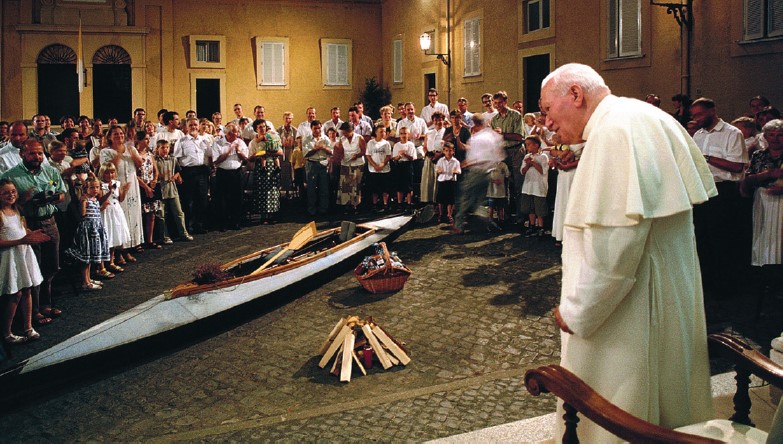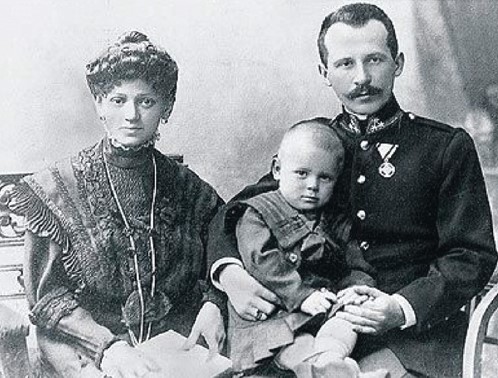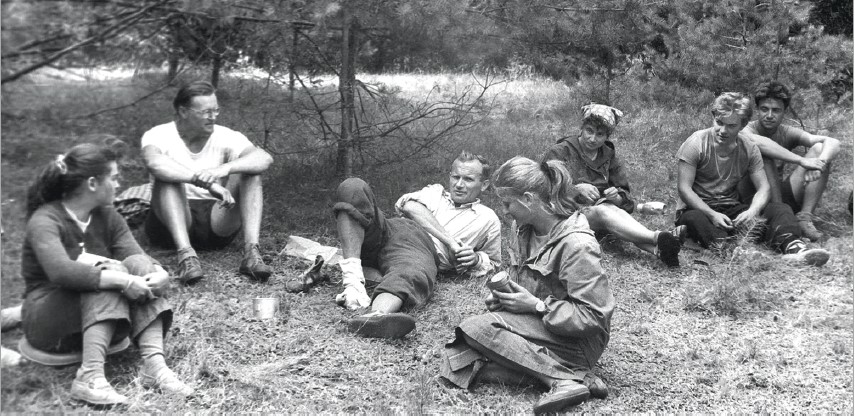Monday 20th July 2020
The CHC @ The Catholic Universe
‘Light, joy and hope’: How St John Paul II placed the family at heart of his papacy
Mgr. Livio Melina
This year marks the 100th anniversary of Karol Wojtyla’s birth. As a priest, bishop and pope, John Paul II’s greatest pastoral concern was undoubtedly the family. Sadly, the centenary of this remarkable saint’s birth has been inevitably muted by the constraints of the Covid situation, but those same constraints have, for many, forced a greater focus on our own families. Mgr Livio Melina recalls the Pope’s words at the first World Meeting of Families.
“Every family carries a light and every family is a light”, Pope John Paul II said, adding that it was “a light which must illuminate the Church’s path and the future of the world.”
He said those words on Saturday, 8th October, 1994 in St Peter’s Square in the Vatican. He was addressing thousands of families gathered below him for the World Meeting of Families. The piazza, recently drenched by an October downpour, glistened with the light of the candles they carried. No doubt this helped to inspire the pope’s words, which had been “improvised, dictated by the heart and sought in many days of prayer”.
His remarks were not merely an extemporisation, however. Faced with an increasing confusion around the family and “attempts to overturn the family’s meaning, depriving it of its natural reference to matrimony”, the Holy Father did not hesitate to ask this decisive question: “Family, what do you say of yourself?”
Analogously, the Church had asked herself the same question at start of the Second Vatican Council: ‘Church, what do you say of yourself?’ The answer had been: “I am Lumen Gentium [The Light of the People], the light of the world!” The Church reflects the light of Christ; and the family, as the “domestic church” according to Lumen Gentium n. 11, must therefore also reflect the light of Christ in this world.


John Paul II had always loved the family in an extraordinary way. Having lost his own family early on, he had placed families at the heart of his priestly and episcopal ministry in Krakow. From holidaying in the Tatra mountains with groups of families, to his role as ‘uncle’ (a nickname to protect his identity from the communist authorities) to the Focolare Movement, this special care and concern carried over into his papal ministry.
As Pope, he convoked the Synod on the Family in 1980, promulgated such important documents as Familiaris consortio, created the Pontifical Council for the Family and the Pontifical Institute for Studies in Marriage and Family Life, and began the World Meeting of Families. “I wish to be remembered as the Pope of the family and of life”, he once confided to a friend.
Why this great concern for the family? The answer lies in Familiaris consortio n. 17: the family is an “intimate community of life and love… [which] has the mission to guard, reveal and communicate love, and this is a living reflection of and a real sharing in God’s love for humanity and the love of Christ the Lord for the Church His bride”.
He well knew that “man cannot live without love. He remains a being that is incomprehensible for himself, his life is senseless, if love is not revealed to him, if he does not encounter love, if he does not experience it and make it his own, if he does not participate intimately in it” (Redemptor hominis, n. 10).
In meditating on the mystery of the family, John Paul II defined human love as a nexus of three fundamental connections, which together guarantee its authenticity according to the Creator’s original intention.
The first connection is that intimate and intrinsic link between love and life, which was affirmed by Pope Paul VI in a definitive and prophetic manner in his encyclical, Humanae vitae. The authentic environment of love, in which human life can worthily be received and mature, is the family founded on matrimony. Without that generous openness to life, the human love between a man and a woman becomes sterile and exposed to the danger of a hedonistic egoism, which collapses in on itself. “The family is the sanctuary of life”, as John Paul II would later affirm (Evangelium vitae, n. 92).
Second, John Paul II points to the link between love and marriage. Love is not simply a feeling or an impulse, but consists of a firm resolution of the will. In this act of love – in desiring the good of the other person – one freely commits one’s being as a gift to the other, creating a communion of persons in the marital covenant. Temporal fidelity and the social and institutional dimensions of this covenant are not extrinsic factors imposed in order to limit the freedom of love: they are intrinsic exigencies of love’s true nature.

The final connection is that between marriage and family. Matrimony is the sole basis for a family that is capable of safeguarding authentic love and life. When a family is detached from matrimony (understood as a stable union between a man and a woman) the bond between its members becomes very fragile; the only reference point that is left for the family is a subjective search for self-realisation.
“This is the hour of the family”, both in the Church and in society! On that October evening of 1994, Pope Wojtyla again passionately affirmed his profound conviction: the future of humanity lies with the family. The glimmering lights on the piazza inspired the Pope to say:
“every family carries a light and every family is a light”. For ethical imperatives only follow that which is already given by God’s grace: namely a gift that is present in every family.
This affirmation does not refer to a generic reality, but to a singularly concrete one: “every” family that lives in “every” part of the world. If prophecy is characterised by the enunciation of the little seed of hope for the future that is hidden in the difficulties of the present time, John Paul II did exactly this. “Dictated by the heart” and matured in “many days of prayer”, he pointed to precisely the family as that seed of hope: as every family that is born of love and vivified by the grace of the sacrament.
Mgr Melina served as Professor of Fundamental Moral Theology at the Pontifical John Paul II Institute for Studies on Marriage and Family Life for over 30 years, for 10 of which he also served as the Institute’s President.
